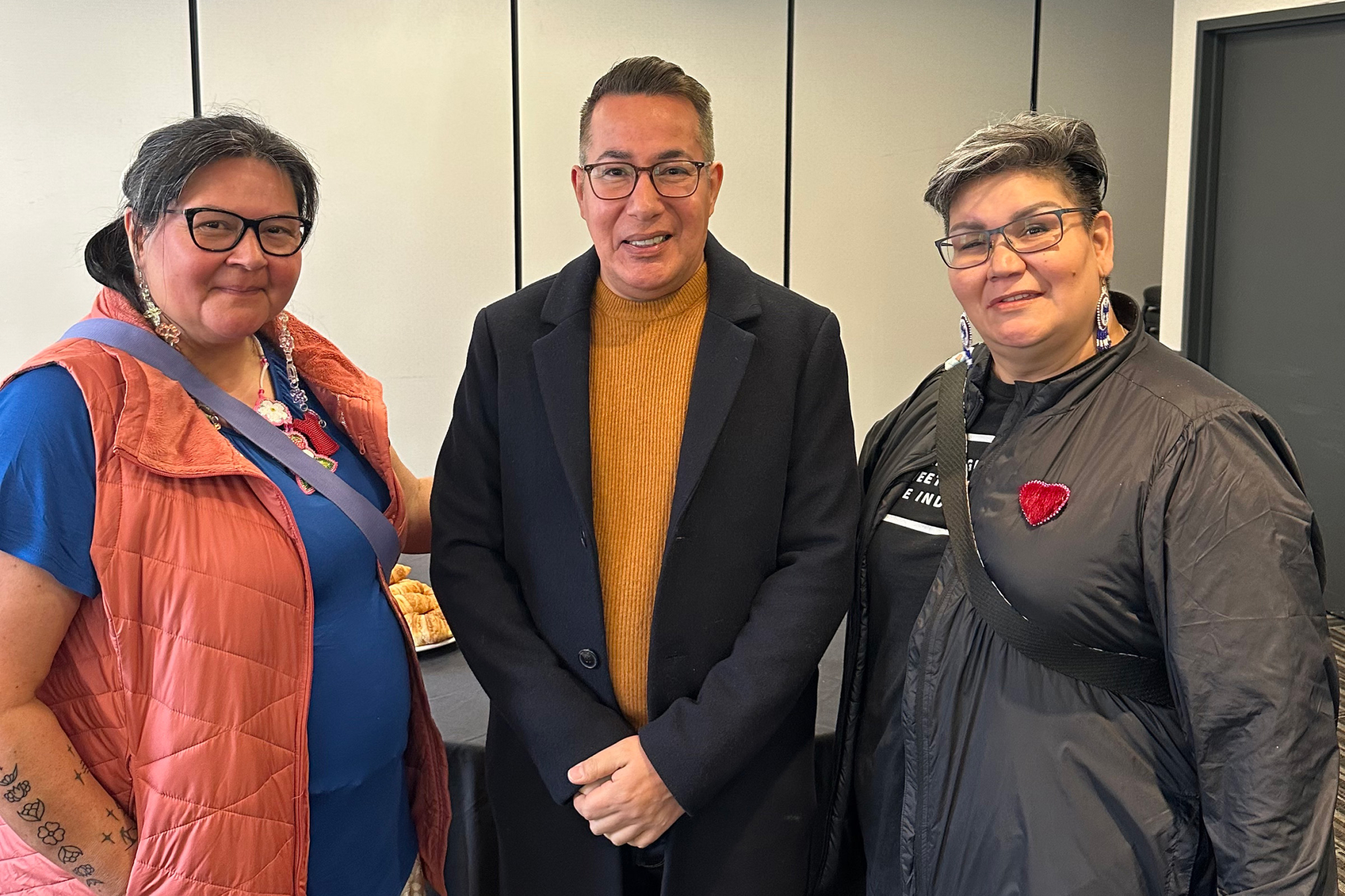But at the age of 28, sitting in a university classroom, Colleen Cardinal learned her experience was shared by many. It even had a name — the ’60s Scoop. From about 1951 until 1984, Canadian child welfare authorities took more than 20,000 First Nations, Métis and Inuit children from their homes and placed them with white families.
“I wanted to find all these adoptees, I wanted to know where they are, I wanted to hear what they went through,” Cardinal said. But then, Cardinal said, that information wasn’t available.
Cardinal first decided to create a map after visiting a conference for grassroots human rights organizations in 2014. There, Cardinal said she came across a world map drawn on a large, white bedsheet on which visitors could map their stories out with colourful yarn.
In 2019, Cardinal launched the online mapping tool. Now, it includes the stories of more than 100 survivors who were displaced from across Canada to places as far as the U.K. and Botswana. The map illustrates where people were born and where they were moved. It logs birthdates, when people moved and if survivors met their biological families, the date that happened. Each entry includes space for people to share words and videos telling their own stories and contact information for survivors to connect with others.
Genetic Detective, a genetic genealogy service near Ottawa, has offered to subsidize DNA test kits for some survivors, create a database of survivors' genetic information and connect survivors to their biological families.
A small group of survivors gathered in Ottawa last week. They filmed themselves telling their stories in their own words, to create videos that will be posted on the map’s website. By sharing their stories, Cardinal said she hopes to normalize their experiences and create a community for survivors.
“I know as an adoptee how lonely it is and how isolating it can be. I needed (to find others). So if I needed it, others need it,” Cardinal said. “And if we want it done our way, we need to do it ourselves — by survivors, for survivors.”










No comments:
Post a Comment
tell us your thoughts!